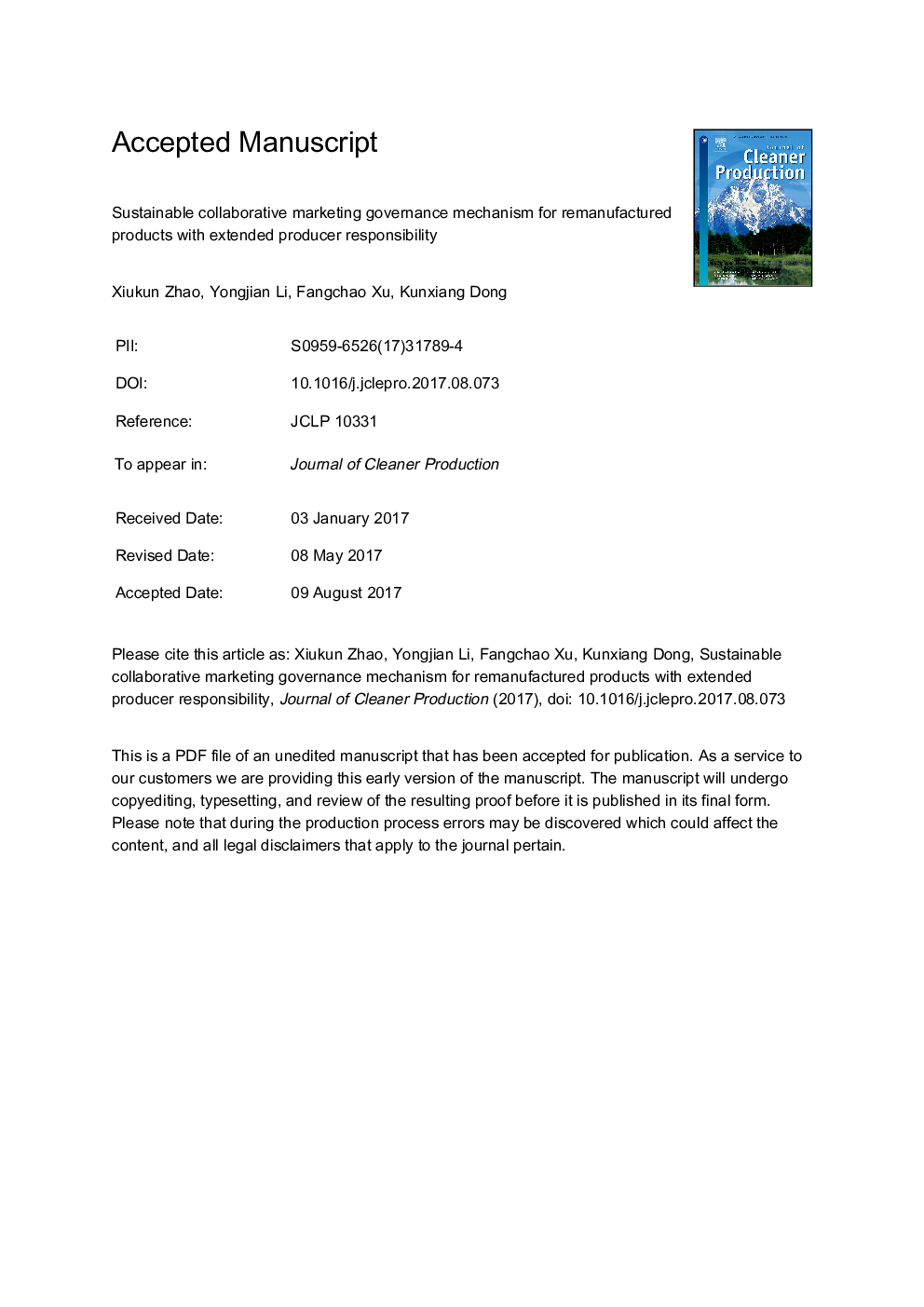| Article ID | Journal | Published Year | Pages | File Type |
|---|---|---|---|---|
| 5479968 | Journal of Cleaner Production | 2017 | 24 Pages |
Abstract
The marketing of remanufactured products has been receiving increasing attention from scholars and practitioners from the perspective of sustainable supply chain governance (SSCG) and extended producer responsibility (EPR). However, the research on remanufactured product marketing under EPR and SSCG mechanisms remains more new exploration. A mathematical model for remanufactured product marketing through the lenses of the Nash and Stackelberg game theory and the SSCG and EPR theories is proposed to deepen this issue in the literature based on the case of Caterpillar® (CAT), which is a benchmark producer that markets remanufactured products successfully. Findings include the characterization of three marketing decision models with EPR, namely, decentralized marketing decision under the weak dependence relation model, decentralized marketing decision under the strong dependence relation model, and collaborative marketing decision under the strong dependence relation model. Furthermore, this paper includes a classification of marketing governance mechanisms on the basis of the relation between CAT and its retailer and the identification of factors that sustain collaborative marketing governance mechanisms. The managerial insights obtained are useful to practitioners who are seeking for sustainable collaborative marketing governance mechanisms for remanufactured products under EPR and to scholars for further theory development.
Keywords
Related Topics
Physical Sciences and Engineering
Energy
Renewable Energy, Sustainability and the Environment
Authors
Xiukun Zhao, Yongjian Li, Fangchao Xu, Kunxiang Dong,
